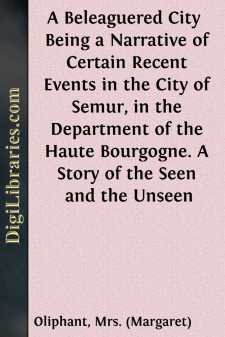Categories
- Antiques & Collectibles 13
- Architecture 36
- Art 48
- Bibles 22
- Biography & Autobiography 813
- Body, Mind & Spirit 142
- Business & Economics 28
- Children's Books 17
- Children's Fiction 14
- Computers 4
- Cooking 94
- Crafts & Hobbies 4
- Drama 346
- Education 46
- Family & Relationships 57
- Fiction 11829
- Games 19
- Gardening 17
- Health & Fitness 34
- History 1377
- House & Home 1
- Humor 147
- Juvenile Fiction 1873
- Juvenile Nonfiction 202
- Language Arts & Disciplines 88
- Law 16
- Literary Collections 686
- Literary Criticism 179
- Mathematics 13
- Medical 41
- Music 40
- Nature 179
- Non-Classifiable 1768
- Performing Arts 7
- Periodicals 1453
- Philosophy 64
- Photography 2
- Poetry 896
- Political Science 203
- Psychology 42
- Reference 154
- Religion 513
- Science 126
- Self-Help 84
- Social Science 81
- Sports & Recreation 34
- Study Aids 3
- Technology & Engineering 59
- Transportation 23
- Travel 463
- True Crime 29
Pascal
Categories:
Description:
Excerpt
INTRODUCTION.
There are few names which have become more classical in modern literature than that of Blaise Pascal. There is hardly any name more famous at once in literature, science, and religion. Cut off at the early age of thirty-nine—the fatal age of genius—he had long before attained pre-eminent distinction as a geometer and discoverer in physical science; while the rumour of his genius as the author of the ‘Provincial Letters,’ and as one of the chiefs of a notable school of religious thought, had spread far and wide. His writings continue to be studied for the perfection of their style and the vitality of their substance. As a writer, he belongs to no school, and is admired simply for his greatness by Encyclopedist and Romanticist, by Catholic and Protestant alike,—by men like Voltaire and Condorcet and Sainte-Beuve, no less than by men like Bossuet, Vinet, and Neander. His ‘Pensées’ have been carefully restored, and re-edited with minute and loving faithfulness in our time by editors of such opposite tastes and tendencies as M. Prosper Faugère, M. Havet, and M. Victor Rochet. Cousin considered it one of the glories of his long intellectual career that he had first led the way to the remarkable restoration of Pascal’s remains. Of all the illustrious names which group themselves around Port Royal, it is Pascal alone, and Racine—who was more its pupil, but less its representative—whose genius can be said to survive, and to invest it with an undying lustre.
Pascal’s early death, the reserve of his friends under the assaults which the ‘Provincial Letters’ provoked, and his very fame, as a writer, have served in some degree to obscure his personality. To many a modern reader he is little else than a great name. The man is hidden away behind the author of the ‘Pensées,’ or the defender of Port Royal. Some might even say that his writings are now more admired than studied. They have been so long the subject of eulogy that their classical character is taken for granted, and the reader of the present day is content to look at them from a respectful distance rather than spontaneously study them for himself. There may be some truth in this view. Pascal is certainly, like many other great writers, far more widely known than he is understood or appreciated. The old, which are still the common, editions of the ‘Pensées,’ have also given a certain commonplace to his reputation. It were certainly a worthy task to set him more clearly before our age both as a man and as a writer.
It is no easy task, however, to do this; and to tell the full story of Pascal’s life is no longer possible. Its records, numerous as they are, are incomplete; all fail more or less at an interesting point of his career. They leave much unexplained; and the most familiar confidences of his sisters and niece, who have preserved many interesting details regarding him, have not entirely removed the veil from certain aspects of his character. The well-known life by Madame Périer, his elder sister, is of course the chief authentic source of his biography. It was written shortly after his death, although not published for some time later; and nothing can be more lively, graphic, and yet dignified, than its portraiture of his youthful precocity, and, again, of the devotions and austerities of his later years. But it leaves many gaps unsupplied. Like other memoirs of the kind, it is written from a somewhat conventional point of view. No one, as M. Havet says, was nearer to him in all senses of the expression, or could have given a more true and complete account of all the incidents in his life; but she was not only his sister, but his enthusiastic friend and admirer, in whose eyes he was at once a genius and a saint—a man of God, called to a great mission. It was from a consciousness of this mission, and the full glory of his religious fame, that she looked back upon all his life; and the lines in which she draws it are coloured, in consequence, too gravely and monotonously. Certain particulars she drops out of sight altogether. These are to be found scattered here and there, sometimes in his own letters, more frequently in the letters of his younger sister, Jacqueline, and in a supplementary memoir, written by his niece, Marguerite Périer, all of which have been carefully published in our time, and made accessible to any reader....












